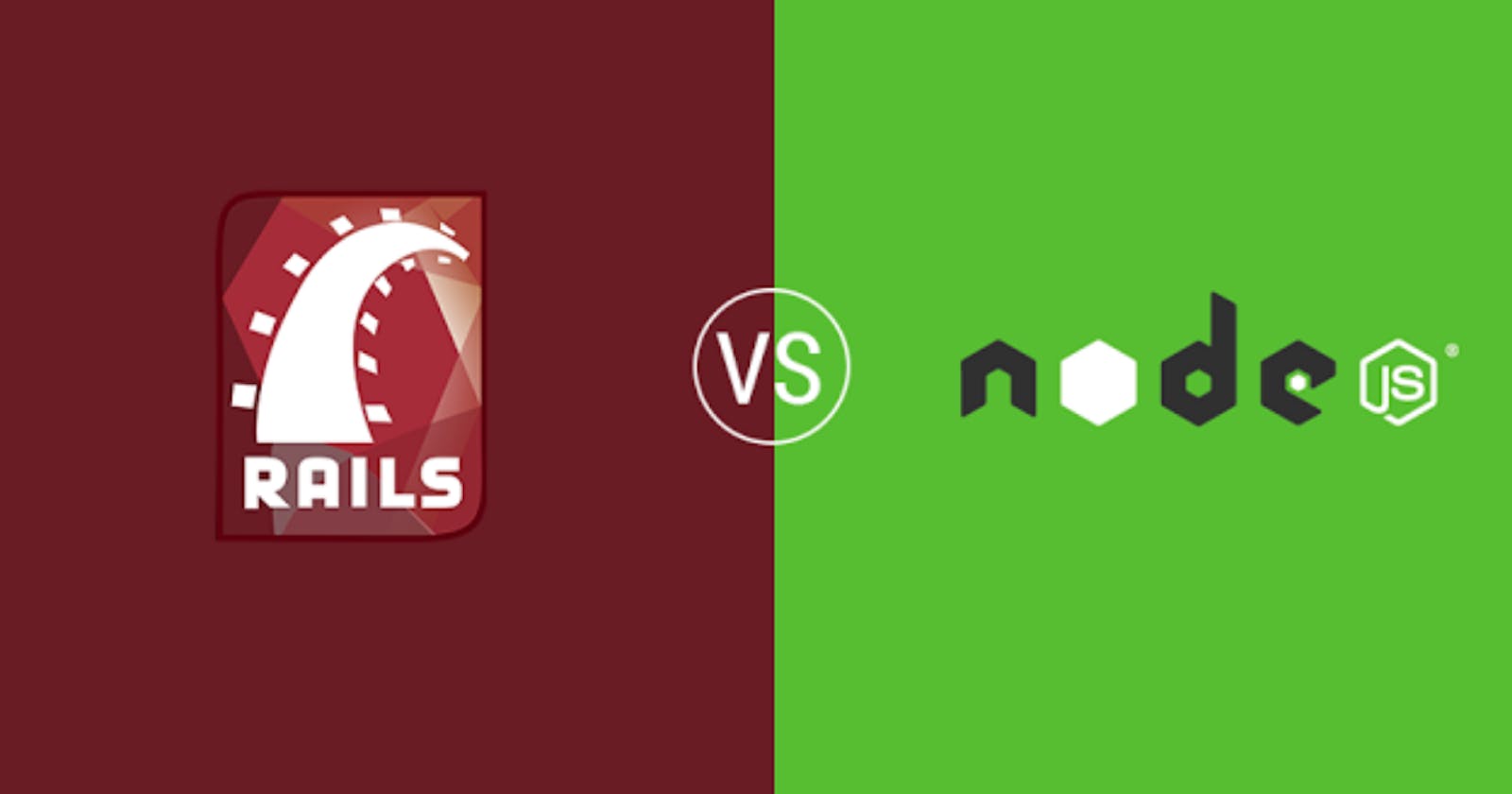Thanks to Hashnode, I have tried Ruby on Rails for the first time and as I am already learning Node js here are some of the key differences I found between both of them
Introduction ✔
Node.js is not a language, but a runtime environment that lets users convert client-side code to server-side. Node converts JavaScript into machine code that can be easily processed by the hardware. The framework is based on Chrome V8 Engine. It’s one of the fast engines out there, which contributes to runtime’s high conversion speed.
Built on the Ruby programming language, Ruby on Rails ( RoR, or sometimes just “Rails”) is a fully-fledged website framework that includes everything you need to complete a website project including the ability to manage logic, routing, and applications, all out of the box.
Why Node JS? 🕶
Fast Execution:

Node.js is best known for its speed. Node.js doesn’t wait for all queries to be processed to start handling new incoming ones.
Effectively, Node.js can handle more requests at the same time, and by definition, the workload of many web servers. Node.js allows programs to keep working even the input, output demands when a server is high. Keeping app performance up no matter the load.
Single Language Only
If you code in only one language on both the front-end and server-side, you progress quicker. Node.js came composed out of JavaScript. The possibility of using JavaScript both at the front end and backend will make development faster and easier. If you previously worked with JS, learning Node.js for the backend will not be a problem.
Scalability
The mix of Node workers and clusters can easily create additional Node.js processes, all depending on the workload. This makes Node.js applications easy to grow.
API Development
Node.js is a go-to language for REST API development.
Why Ruby On Rails? 👓
Web Development Best Practices for a Full Stack Web App
 Ruby on Rails is a highly structured framework for a web app. Rails have a lot of rules on how the code has to be organized. The framework uses the Model, View, Controller framework. To get an app to respond to a request, you need to define a view, controller, and route. Getting started with an MVC framework is time-consuming, but in the end, the code is well-organized and easy to read. In the end, you’ll end up with an efficient code that’s easy to maintain and edit.
Ruby on Rails is a highly structured framework for a web app. Rails have a lot of rules on how the code has to be organized. The framework uses the Model, View, Controller framework. To get an app to respond to a request, you need to define a view, controller, and route. Getting started with an MVC framework is time-consuming, but in the end, the code is well-organized and easy to read. In the end, you’ll end up with an efficient code that’s easy to maintain and edit.Productivity
Employing Ruby to create your web application permits you to develop features extremely fast. This happens because Ruby effortlessly combines the 3rd party software libraries. It is amongst the most productive programming languages.
Exchange/Use Database Info
Prototyping
Ruby on Rails allows writing code fast and implementing built-in features, available in the ecosystem
Problems with Node JS 🚑
- Processor consuming tasks for Node.js applications
- Node.js Asynchronous Programming Model makes it difficult to maintain code.
- Choose Wisely – Lack of Library Support can Endanger your Code.
Problems with Ruby On Rails 📊
- Flexibility can be an issue
- Performance is not always optimized
- No static typing
Use Cases 😎
Node JS
- Real-time apps
- Server-Side Proxy
- Wireless Connectivity
- Chatbots
Ruby on Rails
- Minimum Viable Products
- Prototypes
- CMS Development

